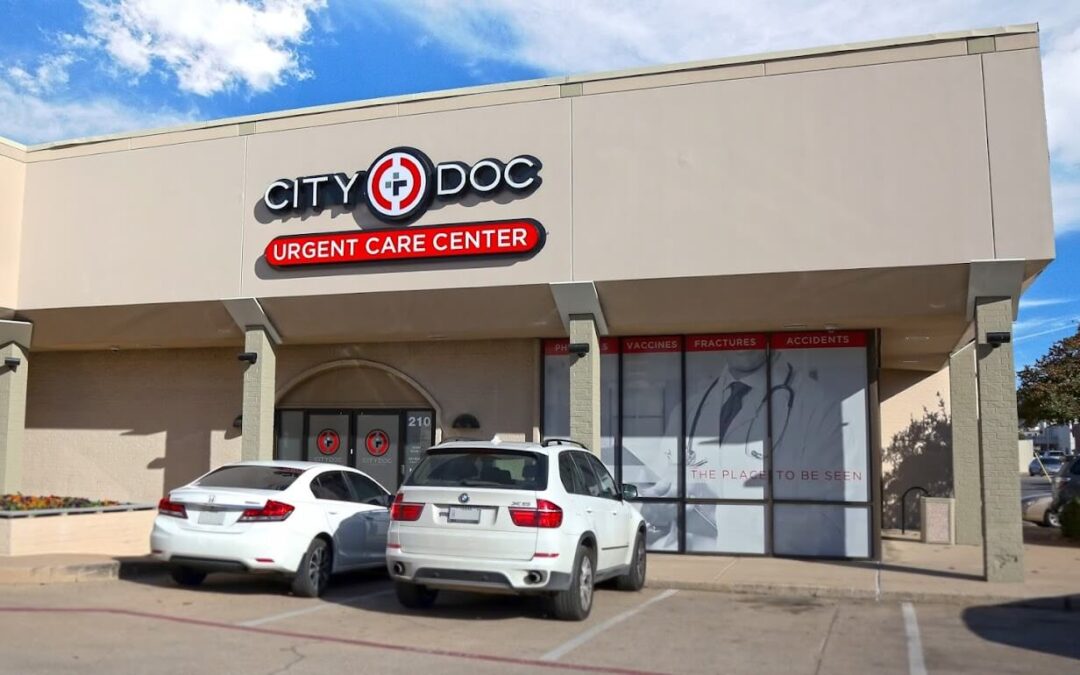Urgent care clinics are medical facilities designed to offer immediate attention for illnesses and injuries that are not life-threatening but require treatment within 24 hours.
What Is Urgent Care For?
An urgent care clinic typically handles minor fractures, cuts that may need stitches and common infections. The primary function of these clinics is to provide accessible, timely, and cost-effective care for urgent, non-emergency health issues.
What Is Emergency Room Care?
On the other hand, the emergency room (ER), or the emergency department, is a medical treatment facility specializing in acute care of patients who present without prior appointment, either by their means or by ambulance.
Urgent Care vs. Emergency Care: Key Differences
The ER is equipped to treat many emergency medical conditions, including severe injuries and illnesses that can be life-threatening and demand immediate, complex care and intervention.
Staffing at urgent care clinics often includes a combination of primary care providers, nurse practitioners, and physician assistants, with the resources to perform minor procedures and diagnostic tests.
In contrast, emergency departments are staffed with specially trained emergency physicians, nurses, and support staff with the expertise to deliver comprehensive care for severe and critical conditions.
Emergency rooms also have access to a broader range of advanced medical resources, such as imaging equipment, surgical suites, and specialists in various disciplines.
Residents seeking timely treatment for less severe ailments can visit our urgent care clinic to receive efficient and professional care without visiting the emergency department.
When to Choose Urgent Care vs. the ER
Choosing between urgent care clinic services and emergency care can often be confusing when faced with a medical concern. An urgent care clinic is an appropriate choice for non-life-threatening medical issues requiring prompt attention.
Scenarios where this holds include minor burns or injuries, fever, flu symptoms, or sprains—all of which can be handled efficiently by urgent care centers.
These facilities are ideal for when your primary care doctor isn’t available and the condition doesn’t warrant the more extensive capabilities of an ER.
On the flip side, for situations that appear to be a medical emergency, such as severe chest pain, difficulty breathing, or significant head injuries, immediate emergency care at the ER is necessary.
The ER is prepared for the most critical conditions, and delay in such instances could result in adverse health outcomes.
Individuals need to understand the severity of medical conditions because using urgent care centers for less severe ailments can alleviate the burden on emergency rooms, ensuring resources are directed to those in dire need.
Reasons to Go to Urgent Care vs. the ER
Urgent care centers are particularly beneficial for dealing with:
-
Minor Injuries: Small cuts that may require stitches, sprains, or minor bone fractures that do not involve significant trauma or complex treatment.
-
Fevers: Fevers that do not accompany risky symptoms like severe rash or difficulty breathing, suggesting a potentially more serious condition.
-
Minor Infections: Including urinary tract infections, upper respiratory infections, or sore throats that need a medical professional’s review and possibly a prescription.

The advantages of choosing urgent care over a hospital emergency room are:
-
Shorter Wait Times: Urgent care providers typically serve patients on a first-come, first-served basis, translating to shorter wait times than the nearest emergency department.
-
Cost-Effectiveness: Treatment at an urgent care facility is generally lower than ER services for non-life-threatening conditions, making it a more economical choice for minor medical care.
-
Convenience: Many urgent care centers have extended hours and are open on weekends, providing access to medical care when your doctor is unavailable.
The key takeaway is that for immediate medical care that is not considered severe or life-threatening, urgent care centers offer a convenient, efficient, and cost-saving alternative to the ER.
Understanding Emergency Room Care
The role of the Emergency Room (ER) in handling life-threatening emergencies is paramount in the healthcare system.
As an emergency medicine hub, the ER is staffed with specialized professionals trained to respond to critical conditions with speed and expertise. Severe injuries, acute chest pain, and suspected stroke symptoms are examples of the types of ailments that mandate an ER visit.
Upon arrival, patients receive immediate evaluation and stabilization, benefiting from a comprehensive array of resources unavailable in an urgent care center or primary care provider’s office.
In contrast to urgent care, which handles less severe health episodes, ER personnel are equipped for high-stakes situations, employing advanced life-saving techniques and technology.
These facilities boast state-of-the-art imaging equipment, operating rooms ready for emergency surgery, and a broad spectrum of specialists on call to address complex medical scenarios.
The combined presence of experienced emergency physicians, surgeons, and critical care nurses ensures that patients with life-threatening conditions receive the best possible care in the crucial moment.

What Is the Difference Between Urgent Care and Emergency Room?
By understanding the critical differences between urgent care and the ER, patients can make more informed decisions regarding where to seek care, depending on their medical needs.
-
Hours of Operation: Urgent care clinics provide extended hours, including evenings and weekends, for patients needing care outside standard office hours. Emergency departments operate 24/7, ensuring round-the-clock access for any medical emergency.
-
Cost: In urgent care clinics, patients encounter lower costs since they focus on less severe conditions that require fewer resources. At the same time, emergency rooms have higher costs due to the need for specialized staff, advanced technology, and the capability to treat life-threatening conditions.
-
Level of Care: Urgent care clinics provide timely care for non-emergency but urgent conditions like minor fractures, infections, and flu-like symptoms. At the same time, emergency departments are equipped to handle severe and life-threatening conditions requiring immediate and advanced medical intervention such as heart attacks, strokes, and severe trauma.
-
Staffing: In urgent care, primary care providers, nurse practitioners, and physician assistants manage critical but non-life-threatening health issues. The emergency room is staffed by board-certified emergency physicians, trauma surgeons, and specially trained support staff for various emergencies.
-
Medical Equipment: Urgent care clinics are equipped with essential diagnostic and treatment tools for less complex medical conditions, while the emergency department boasts sophisticated equipment like CT scanners, MRIs, and complete surgical suites for complex or critical emergencies.
The importance of choosing the correct facility — urgent care or emergency room — cannot be overstated, as it impacts the quality and practicality of the care received.
Urgent care clinics are designed for speed and efficiency when faced with minor ailments, while emergency departments are structured to offer intensive care for life-threatening conditions.
Recognizing the severity of medical issues is critical, as it ensures that life-saving resources are available for those in genuine need of emergency medical services.
Making Informed Healthcare Decisions: What Is Urgent Care vs. Emergency Room
When considering where to go for medical assistance — the urgent care or the emergency room (ER) — it is essential to understand the critical differences between the two facilities.
Urgent care centers are ideal for non-emergency situations, offering extended hours and handling ailments such as minor injuries and common illnesses with shorter wait times and lower costs.
In contrast, the ER should be reserved for life-threatening emergencies, as it operates 24/7 with specialized staff and advanced medical equipment ready to manage critical conditions.
Continually evaluate the severity of the health issue, and don’t hesitate to seek appropriate care. Prompt medical attention in the right setting can significantly affect outcomes.
Remember, making an informed decision about where to receive care ensures that resources are utilized effectively and, most importantly, that you or your loved ones receive the correct medical attention when it matters most.

For Your Urgent Care Needs, Choose CityDoc!
CityDoc Urgent Care prides itself as a premier primary care provider, boasting a sterling reputation for offering reliable and patient-centered urgent care services.
With a team of experienced healthcare professionals, CityDoc is the go-to option for those who have not yet needed to go to the emergency room but still require prompt treatment for minor illnesses or injuries.
Take advantage of our easy-access online resources to learn more about our services. With CityDoc’s patient-focused approach, you can be assured of efficient service without compromising the quality of your healthcare.
For all your urgent medical needs that fall short of life-threatening conditions, trust CityDoc to provide comprehensive care. Find the nearest CityDoc Urgent Care location by visiting our locations page and experience the best in community health services.
